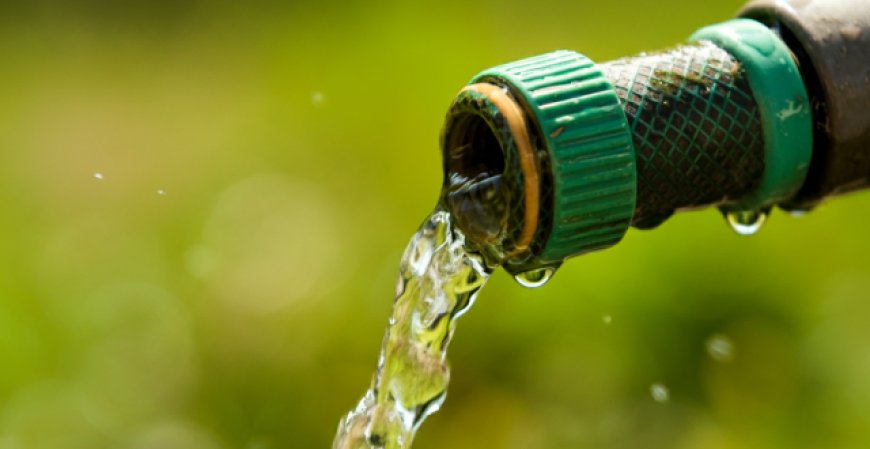Common Causes of Low Water Pressure and How to Fix Them
Low water pressure can be frustrating, especially when it affects your daily routine, such as showering, washing dishes, or using appliances. If you’ve noticed that the water flow in your home is weaker than usual, there could be several underlying causes.

Low water pressure can be frustrating, especially when it affects your daily routine, such as showering, washing dishes, or using appliances. If you’ve noticed that the water flow in your home is weaker than usual, there could be several underlying causes. Understanding these issues and knowing how to address them can help restore normal water pressure. If you're experiencing persistent low water pressure in Cowansville, Plombier Cowansville can diagnose the problem and provide reliable solutions to get your water pressure back to normal.
Here are some of the most common causes of low water pressure and how to fix them.
1. Clogged or Blocked Pipes
Over time, mineral deposits, debris, or rust can build up inside your pipes, causing blockages that restrict water flow. This can result in low water pressure, especially in older homes with galvanized steel pipes. To fix this, a professional plumber can clean the pipes or replace sections that are heavily clogged. In some cases, pipe replacement may be necessary if the buildup is extensive.
2. Leaking Pipes
If a pipe is leaking, water is escaping before it reaches your fixtures, which can lead to a noticeable decrease in water pressure. Leaking pipes are often hidden behind walls, in basements, or under floors, making them hard to detect. If you suspect a leak, Plombier Cowansville can use advanced leak detection tools to locate the issue and repair or replace the damaged pipe.
3. Faulty Pressure Regulator
Your home may have a pressure regulator, which is designed to maintain a consistent water pressure level coming into your home. If this regulator is malfunctioning or set too low, it can result in reduced water pressure throughout the house. A plumber can assess and adjust the pressure regulator or replace it if necessary to restore normal pressure.
4. Sediment Buildup in the Water Heater
Over time, sediment from hard water can accumulate inside your water heater, reducing its efficiency and causing lower water pressure in hot water lines. Flushing the water heater regularly can help prevent sediment buildup. If the issue persists, it may be necessary to drain the tank and clean the system, or in extreme cases, replace the water heater.
5. Damaged or Corroded Fixtures
Mineral deposits and corrosion can build up in faucets, showerheads, and aerators, leading to a decrease in water pressure at those specific fixtures. To fix this, try removing and cleaning the fixture to clear any blockages. If the buildup is severe, it might be time to replace the affected fixtures.
6. Municipal Water Supply Issues
Sometimes, the issue with low water pressure originates outside your home. Municipal water supply problems, such as maintenance work or increased demand in your area, can temporarily affect water pressure. If you suspect that the issue is due to municipal supply, contact your water utility company to inquire about any ongoing issues. If the problem persists, you may need to wait until the supply is restored.
7. Faulty or Closed Valves
Check all the water supply valves in your home to ensure they are fully open. Sometimes, a valve may be partially closed, which restricts water flow and results in low pressure. This can happen if the valve was accidentally turned off or hasn’t been fully opened during maintenance or repairs. If everything looks good, but the pressure is still low, consult a plumber to examine your system for other issues.
8. Water Pressure Drop During Peak Hours
In some cases, low water pressure may occur only during certain times of day, especially if your neighborhood experiences a high water demand (e.g., during mornings or evenings when many people are using water). If this is the case, the issue may be temporary and resolved once demand decreases. However, if it’s a consistent problem, your plumber can help you explore other solutions, such as installing a pressure booster pump.
9. Increased Demand on Plumbing System
If you’ve recently added new plumbing fixtures or appliances that use water, such as a second shower or washing machine, this can put a strain on your plumbing system and reduce water pressure. In this case, a plumber can evaluate your system’s capacity and recommend upgrades, such as installing additional piping or a pressure booster to ensure that all your fixtures receive adequate water flow.
Conclusion
Low water pressure can be caused by a variety of factors, from clogged pipes to faulty regulators or municipal supply issues. While some problems are easy to fix with a simple cleaning or adjustment, others may require professional help. If you’re dealing with persistent low water pressure in Magog, don’t hesitate to contact Plombier Magog. Our experienced team of plumbers can quickly identify the cause of your water pressure issues and provide the necessary repairs or replacements to restore optimal flow throughout your home.
What's Your Reaction?




















